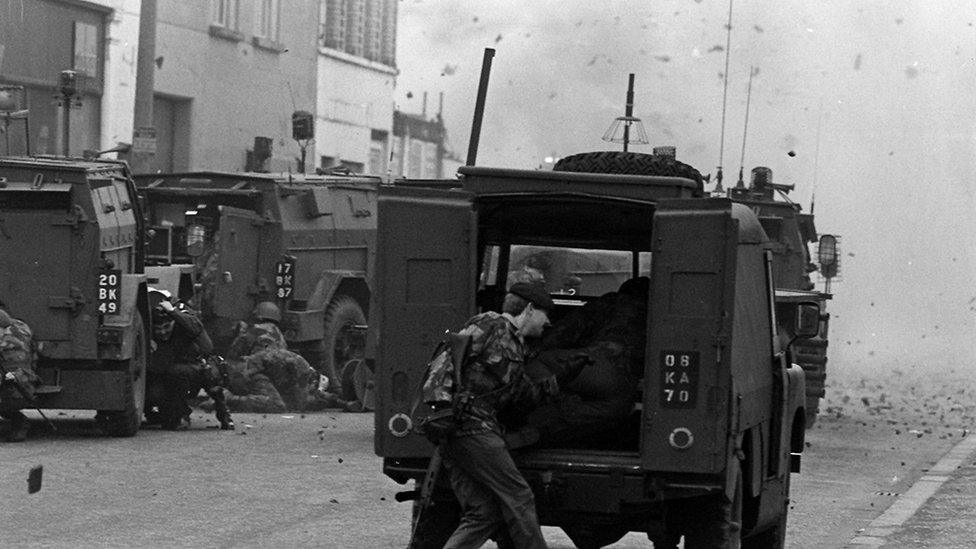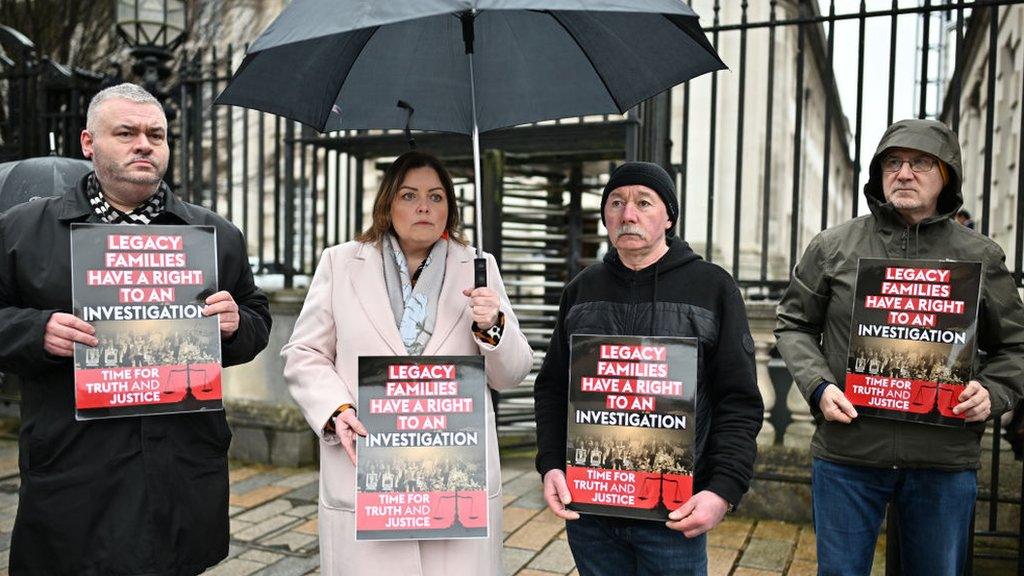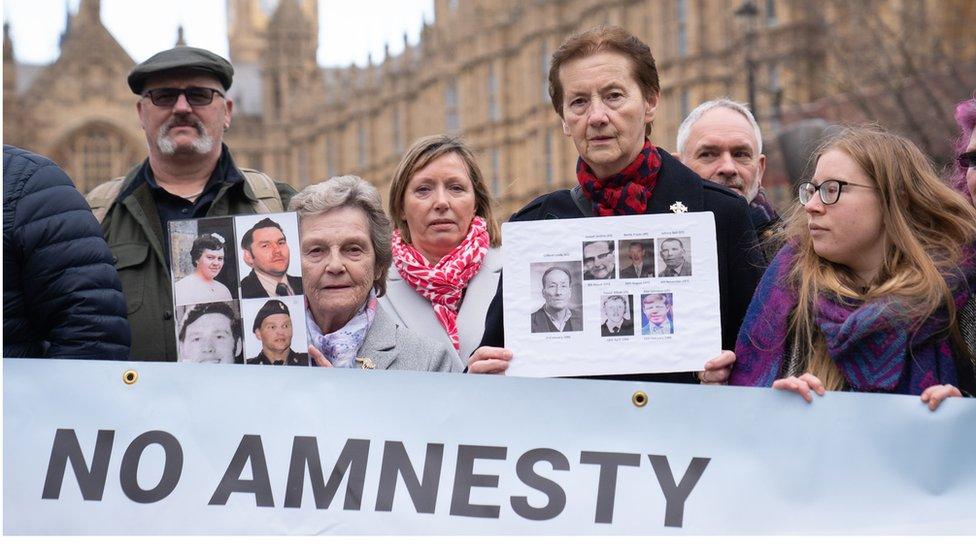Patrick Duffy: Family lose inquest battle due to Legacy Act
- Published

Patrick Duffy was shot by an undercover Army unit in 1978
The family of Patrick Duffy, an IRA man killed by the Army in Londonderry in 1978, have lost a High Court battle over the inquest into his death.
Relatives claimed the Ministry of Defence (MoD) had acted unlawfully.
They alleged the MoD failed to complete a disclosure process before a cut-off imposed by the UK government's controversial legacy law.
But a judge dismissed the challenge mounted on claims of irrationality and a breach of human rights.
Mr Justice Humphreys ruled: "The next of kin has every right to feel aggrieved at being denied the completion of the inquest into the death of Mr Duffy.
"However, this has come about as a result of an Act of Parliament."
Patrick 'Patsy' Duffy, who was 50, was shot 14 times by undercover soldiers at a house in the Brandywell area of Derry in November 1978.
A fresh inquest into Mr Duffy's death was granted in March 2019 and formed part of a five-year plan to clear a backlog of Troubles-era cases.
When the tribunal opened in April last year, it was beset by delays over obtaining sensitive material from the MoD.
Limited resources due to the pressures of other inquests were cited as a reason for the hold-up.
In January, a MoD representative said it could not complete the sensitive discovery process before 1 May - the deadline for concluding hearings set out in the Northern Ireland Troubles (Legacy and Reconciliation) Act 2023.
The coroner subsequently ruled that the inquest would not be listed again to continue.
'Changed landscape'
Lawyers for Mr Duffy's daughter, Margarita, argued that the MoD's actions were irrational, an abuse of power and a violation of her human rights.
With Mr Duffy's death having occurred outside a 12-year-limit from when the Human Rights Act came into force in 2000, Mr Justice Humphreys found that the Article 2 procedural obligation does not apply as a matter of domestic law.
The judge said the MoD could have engaged greater resources at a much earlier stage to meet disclosure requirements across the range of legacy cases.
But he held: "Decisions made in the context of the original five-year-plan have to be seen in the changed landscape of the 2023 Act which has created a race to the finish line of 1 May 2024."
Identifying no evidence of bad faith or irrationality, he dismissed the application for judicial review.
Mr Justice Humphreys added: "The coroner herself accepted that the evidence presented to her was truthful.
"There is therefore no basis to impeach her findings."

What is the Northern Ireland Troubles Act?
The act, which came into effect in September, will end future civil litigation and inquests into deaths which occurred during more than 30 years of violence in Northern Ireland, known as the Troubles.
The government has said the legislation, which applies to all former members of the security forces and ex-paramilitaries, is an attempt to draw a line under the events of the past.
It has repeatedly stated the new act is, in its view, human rights compliant.

The Troubles was a period of conflict which lasted for 30 years and cost the lives of more than 3,500 people
Prosecutions that are currently ongoing will continue to conclusion. However, any inquests that have begun will end in May unless they have reached the point of delivering findings.
It is also likely to limit investigations, which from now on would be undertaken by a new body set up to probe Troubles-related killings - the Independent Commission for Reconciliation and Information (ICRIR)
A number of legal challenges to it have been brought by victims' groups and families of people who were killed or injured during the Troubles.
- Published19 September 2023

- Published28 February 2024

- Published5 September 2023
